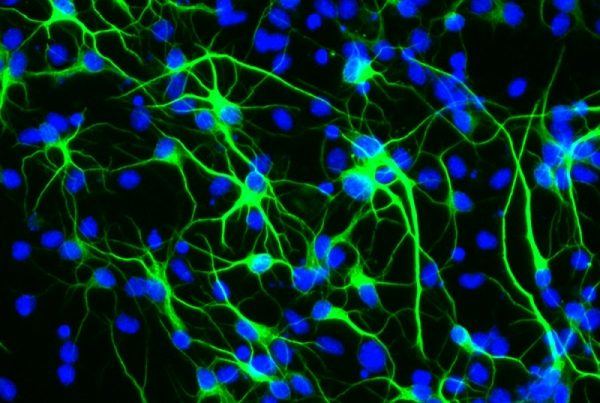Addiction does not see gender. While there is a misconception that usually addiction issues can be witnessed only among young men, the Centers for Disease Control and Prevention has reported that the fastest-growing part of people struggling with addiction is middle-aged women.
In most cases, women within the age range of 30-64 end up becoming victims of substance abuse. Since 1999, the number of deaths due to an overdose of any substance abuse has quadrupled.
If any of your loved ones are suffering from substance abuse, one way to help her is to enroll her in a proper drug rehab center. But before opting for a rehab center, it is best to get some basic knowledge about substance abuse in middle-aged women.
Here in this article, we will guide you with the necessary information you need to know about substance abuse in middle-aged women.
Common Substance Abuse Issues in Middle-Aged Women
Addiction to substance abuse in middle-aged women can take several forms.
1: Alcohol
We all know about the legality of drinking alcohol after one reaches the age range of 21 years or more than that. Almost every type of gathering encourages the consumption of alcohol.
It is also seen as a way of coping with stress. The “wine mom” culture encourages middle-aged women to see a glass of wine at the end of the day as the most deserving treat. The problem arises when “just one glass” turns into a bottle.
2: Benzodiazepines
Have you heard of the term “Mother’s, Little Helper?”
It was a big hit during 1966 as a song from the Rolling Stones. Valium is most popularly described as that. So, it is no wonder why benzodiazepines still hold a high appeal to women who are struggling with anxiety issues. You might not know that this particular drug is not at all intended for daily use on a long-term basis and also becomes addictive.
3: Opioid
Middle-aged women usually experience immense pain due to fibromyalgia, arthritis, and several other chronic conditions. However, opioids also come with a higher potential for abuse. When women start mixing opioids with alcohol, issues can arise.
4: Heroin
If a woman ends up developing a severe addiction to opioid painkillers, she may struggle to obtain enough pills from the same doctor. So, in order to get the same high, the individual might turn to heroin, and we all are quite aware of the addiction tendency of this particular substance.
Factors Which Contribute To Addiction
When it comes to developing substance abuse, there is no single reason for that. Addiction is not a bad habit; it is indeed a biologically-based health condition, which has a number of environmental triggers. When it comes to developing substance abuse in middle-aged women, the following are the most common factors.
Factor 1: Parenting Issues
The whole world might be promoting gender equality. Still, when it comes to a woman, most of the parents treat them differently and also expect different things from them. Due to some parenting issues, women end up developing addiction towards a particular substance.
Factor 2: Unhappy Marriage
Our society mostly expects a woman as a nurturer and caretaker, which means, when it comes to marital stress, women are most exposed to them. Apart from that, an unhappy marriage also leads to substance abuse.

Syda Productions/Shutterstock
Factor 3: Work-Related Issues
Women need to handle the home and the world altogether. Overwhelmed with responsibilities at home, it can become a little more difficult to cope with work or job-related issues. As a quick escape, they take the assistance of different substances and become addicted.
Factor 4: Insecurities About Body Image
Middle age comes with a lot of changes and women can become more concerned about their appearance and to deal with the stress of this, they develop an addiction.
Effects of Substance Abuse
Any type of addiction or substance abuse in middle-aged women is more prone to develop gradually. That is why the signs of a severe problem could be subtle in the initial days. Women, who mostly feel pride in their multitasking skills, can hide their issues from their dearest ones.
Substance abuse an issue among middle aged woman
However, with every passing day, the issues caused by alcohol or drugs will become too serious to ignore. Here are the effects of substance abuse in middle-aged women.
- Risky sexual encounters, such as extramarital affairs.
- Issues with work performance.
- Stress in relationships with children.
- Stress in a relationship with a romantic partner or spouse.
- Financial issues related to using the money for alcohol or drugs instead of paying all the usual bills.
- Physical issues like nausea, weight changes, headaches, or fatigue.
- Legal issues, for example, complaints of child neglect or a charge of driving under the influence.
Ignoring all these signs of addiction or substance abuse might lead to a potentially fatal overdose.
With time, when tolerance to an abused substance develops, it becomes really easy for an individual to accidentally take more substance than the body can handle.
Get Help, Get Back Sober Life!
The only way to become sober and return to normal life is with professional help. Substance abuse is a health condition, and in order to get rid of that, an individual always needs proper treatment and medical care.



![women [longevity live]](https://longevitylive.com/wp-content/uploads/2020/01/photo-of-women-walking-down-the-street-1116984-100x100.jpg)










